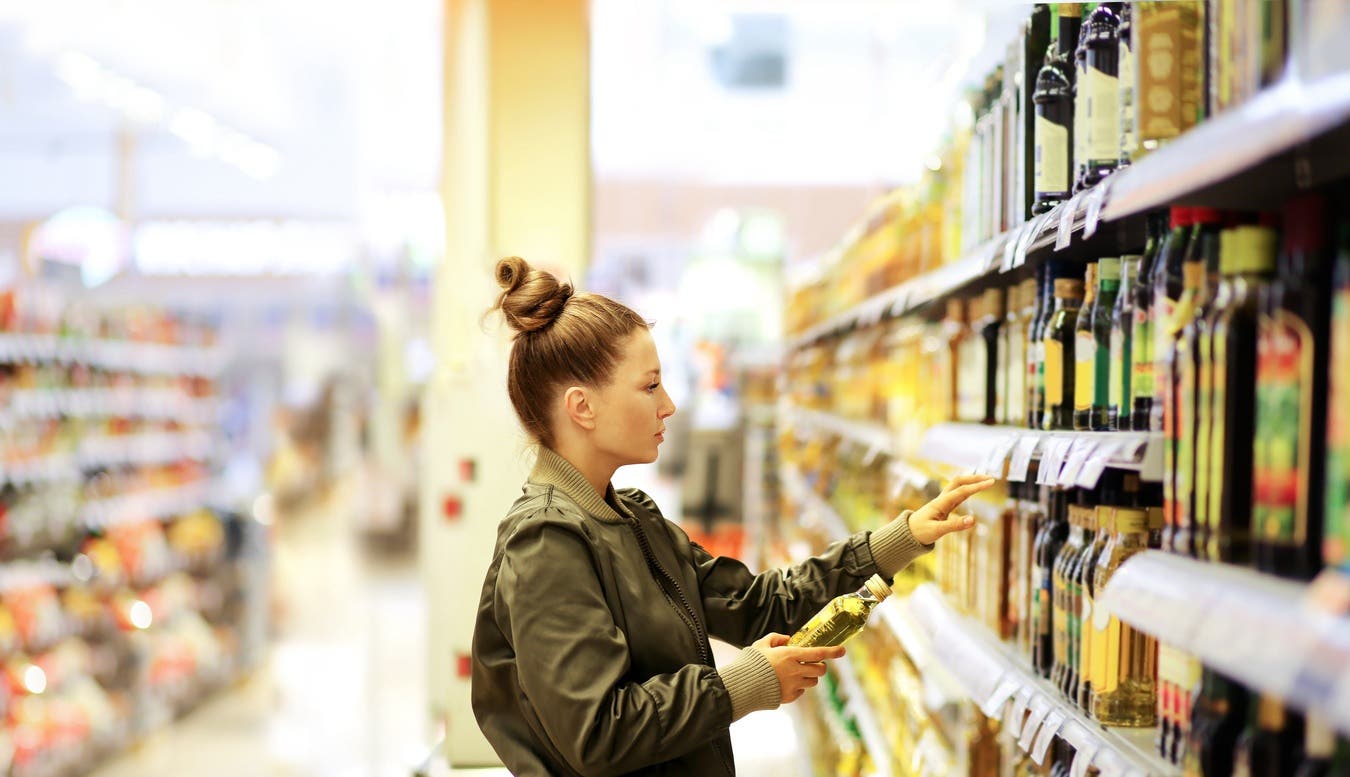As we attempt to flatten the curve of COVID-19, the only time many of us are leaving the house is to go to the grocery store—a once routine task that is now fraught with anxiety about risk of infection. Grocery runs during the pandemic should indeed be limited (and, as of right now, avoided entirely).
But when you do need to make a trip to the market, the groceries themselves should be the least of your worries, says Chrysan Cronin, DrPH, MPH, director of the public health program at Muhlenberg College in Allentown, Pennsylvania.
“The virus has to be expelled from someone who is sick,” says Cronin. “A sick person would need to be close enough to your groceries and cough on them for any kind of droplet to land on them.” And even if that were to happen, the viability of the virus would decrease over time. “It’s just so unlikely that you would get infected like that.”
According to a recent public service announcement by Frank Yiannas, deputy commissioner for Food Policy and Response at the U.S. Food and Drug Administration, there is no evidence that food or food packaging is associated with the transmission of the coronavirus that causes COVID-19.
“Unlike foodborne gastrointestinal viruses like norovirus and hepatitis A that make people ill through contaminated food, SARS-CoV-2, which causes COVID-19, is a virus that causes respiratory illness,” writes Yiannas. “This virus is thought to spread mainly from person to person. Foodborne exposure to this virus is not known to be a route of transmission.”
That being said, there are safety precautions that consumers should keep in mind, according to Cronin. Here are nine tips for safer supermarket shopping during the pandemic.
1. Have a Plan
Always make a list, says Cronin. “It keeps you more organized so you can limit the number of times you actually have to go to the grocery store. It makes your shopping more intentional.”
Having a list makes you more efficient, so you can work your way through the store faster. “Really, the less time you can spend in that grocery store, the lower the risk,” says Cronin.
Note that some grocery stores are offering special hours for seniors and other higher-risk individuals, typically first thing in the morning. If you fall into this category, check to see whether any local grocery stores are participating. (Or better yet, bypass the store altogether and use a grocery delivery service such as Instacart.)
2. Grab Those Wipes
Many grocery stores offer free sanitizing wipes at the front of the store so that shoppers can wipe off their carts before use. "[In case] they don't have any, make sure you bring some with you," says Cronin.
3. Limit Your Touching
Only handle the items that you’re sure you’ll buy. “I don’t touch a bunch of different things and decide what I’m actually going to put in my cart,” says Cronin. Be intentional about what you pick up.
4. Wear a Mask and Keep Your Distance
The CDC now recommends wearing a cloth face covering out in public. This is more about protecting others from your respiratory droplets, but if everyone wears a mask, everyone reaps that benefit. Even when wearing a mask, be sure to keep your distance from other shoppers. “It’s sort of hard in a grocery aisle to be six feet apart from somebody, but I do notice people are being really respectful of that, and they’ll move out of the way,” says Cronin.
5. Grab Some More Wipes
As you’re leaving, pick up another sanitizing wipe or two to bring with you to your car. Once you’ve unloaded your cart and put it away, wipe down your hands before getting into your car to go home.
6. Wash Your Hands
Wash your hands with soap and clean running water for at least 20 seconds when you get home and again after you finish unloading your groceries.
7. If You Brought Cloth Bags, Wash Them
Many states have temporarily banned reusable bags or delayed implementing or enforcing new restrictions on single-use bags. However, if you did bring your cloth bags, make sure you launder them as soon as you get home, says Cronin.
8. Wash Your Produce, but Not with Soap
“I tend to do that when I get home,” says Cronin. “I find that if I wash my produce ahead of time and store it washed, I’m much more likely to use it all.” If you don’t wash it right away, you should be fine as long as you wash it before you eat it.
As for how you should wash, Cronin offers, “Just put it under running water. I usually wash my produce for a good minute or so to get rid of dirt and other things that can be making us sick like E.coli and salmonella too.”
Whatever you do, don’t use soap, she adds. “Not only does it not taste good, but it can really mess up your stomach and make you nauseous.”
Once you’re done washing produce, thoroughly pat it dry before storing in the fridge, to help it stay fresh longer.
9. Don’t Bother Decontaminating Packaged Foods
Washing or wiping down food packaging is probably overkill. Research reported in March in The New England Journal of Medicine found that the virus can be detected on plastic for up to 72 hours and cardboard and paper for up to 24 hours, but it degrades quickly during that time; the study found that the concentration of COVID-19 degraded by half within 6.8 hours on plastic surfaces and within 3 hours on cardboard. Again, just be sure to wash your hands before you prep a meal and again before you eat it.
Bottom Line
“Nothing is risk-free,” says Cronin. “Certainly, there is an infinitesimal risk that you would become infected by your groceries. But the risk is so small. The riskiest part of the grocery shopping experience is being around other people.”
Check with the Centers for Disease Control for the latest advisories regarding COVID-19.

Related News
Get Our Best Price On The Forks Meal Planner

Forks Meal Planner takes the guess work out of making nutritious meals the whole family will enjoy.
SAVE $200 ON OUR ULTIMATE COURSE

Join our best-selling course at a new lower price!


